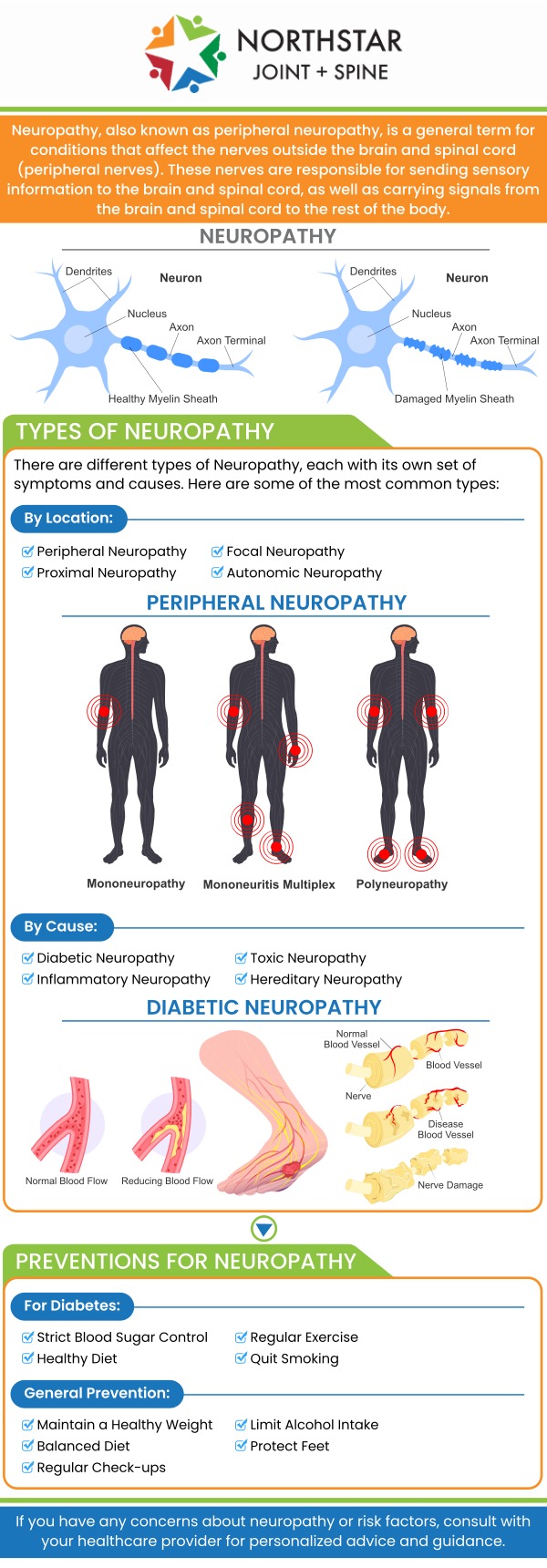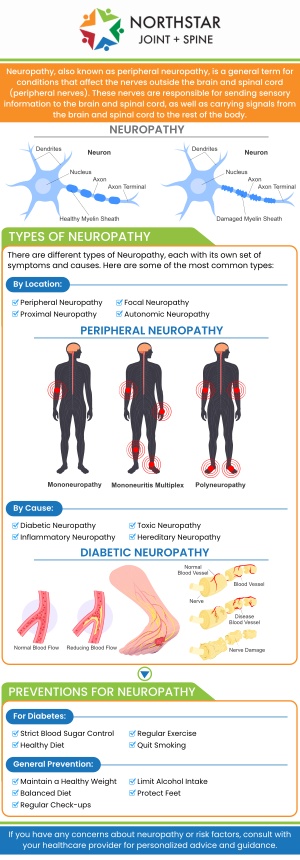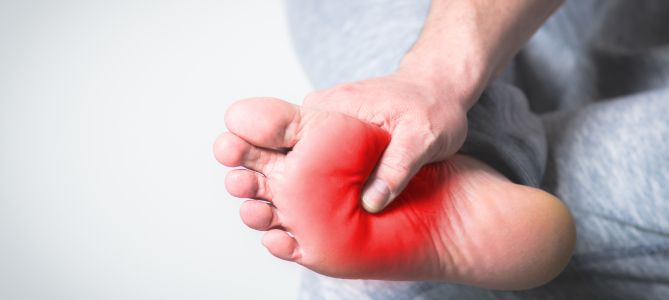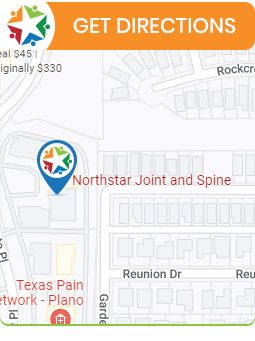Peripheral Neuropathy Treatment in Plano, TX
At Northstar Joint and Spine in Plano, TX, individuals suffering from peripheral neuropathy can find not just hope, but real solutions. Led by dedicated and board-certified Dr. Robert Nocerini MD, we are at the forefront of managing and treating nerve pain and damage associated with peripheral neuropathy. Using a combination of cutting-edge technology, personalized care plans, and a holistic approach to health, Northstar Joint and Spine ensures that each patient receives the focused attention and comprehensive care necessary to improve their quality of life. For more information, please contact us today or schedule an appointment online. We are conveniently located at 7704 San Jacinto Pl Suite #200 Plano, TX 75024.




Table of Contents:
What is peripheral neuropathy?
What are the symptoms of peripheral neuropathy?
What causes peripheral neuropathy?
What are the treatment options for peripheral neuropathy?
What Makes Dr. Robert Nocerini, MD, the Right Choice for Peripheral Neuropathy Care in Plano, TX?
Peripheral neuropathy is a medical condition resulting from damage to the peripheral nerves, the extensive network of nerves that transmit signals between the central nervous system (brain and spinal cord) and the rest of the body. This condition can manifest as pain, numbness, tingling, or weakness, primarily in the hands and feet, though it can affect other areas of the body as well. Symptoms vary widely in intensity, from mild inconvenience to severe, debilitating pain, significantly impacting daily activities and quality of life. While it can derive from various causes, including diabetes, infections, inherited disorders, and exposure to toxins, the underlying thread is the disruption to the normal function of the nerves, altering sensation and movement control.
Peripheral neuropathy can be challenging to manage, as it often requires a comprehensive treatment approach tailored to the underlying cause. In many cases, early intervention is crucial to prevent further nerve damage and improve symptoms.
Symptoms of peripheral neuropathy can range from mild to severe and often develop gradually. The most common sign is a sensation of numbness, tingling, or prickling, typically starting in the toes or fingers and potentially spreading to other parts of the body. Many individuals experience sharp, jabbing, throbbing, or burning pain, especially at night. As the condition progresses, it may also lead to muscle weakness, loss of coordination, and in some cases, paralysis, particularly when motor nerves are affected.
Sensory changes, such as an inability to feel temperature fluctuations or pain, are also common. This can result in difficulty detecting temperature extremes, making it harder to respond to hot or cold conditions. Additionally, peripheral neuropathy can affect autonomic nerves, leading to abnormalities in functions like blood pressure regulation, heart rate, bladder control, or digestion, further complicating the condition.
At Northstar Joint and Spine, Dr. Robert J. Nocerini specializes in diagnosing and managing peripheral neuropathy, offering personalized care to help alleviate symptoms and improve overall well-being. Treatment is tailored to the specific type of nerve affected, ensuring a comprehensive approach to managing the condition.
Peripheral neuropathy can be caused by a variety of factors, reflecting the complexity of the nervous system. One of the most common causes is diabetes, particularly when blood sugar levels are poorly managed over time, leading to nerve damage. Genetic factors also play a significant role, as certain inherited conditions can directly result in neuropathic symptoms.
Exposure to environmental toxins, such as heavy metals, as well as certain medications, can damage nerves and contribute to the development of peripheral neuropathy. Infections, including Lyme disease, shingles, hepatitis C, and HIV, can target the nervous system and lead to nerve-related issues.
Autoimmune diseases, in which the body’s immune system mistakenly attacks its own tissues, are another significant cause of peripheral neuropathy. Conditions like rheumatoid arthritis and lupus can result in nerve damage due to this immune response. Additionally, nutritional deficiencies, particularly in vitamins like B12, can disrupt nerve function and contribute to neuropathic symptoms.
The causes of peripheral neuropathy are varied and often interconnected, making it essential to address the underlying factors when seeking treatment. At Northstar Joint and Spine, Dr. Robert J. Nocerini specializes in diagnosing and managing peripheral neuropathy, offering individualized care to help improve quality of life.
Treatment for peripheral neuropathy vary widely, tailored to the underlying cause of the nerve damage and the symptoms experienced by the patient. Effective management often begins with controlling the conditions contributing to neuropathy, such as diabetes, to prevent further nerve damage. Medications are a mainstay in treatment; pain relievers, anti-seizure medications, and topical treatments can help alleviate pain and discomfort. For some, antidepressants prove beneficial not just for mood, but for pain management by interfering with chemical processes in the brain and spinal cord that cause you to feel pain. Physical therapy can also play a vital role, helping to strengthen muscles weakened by damage and improve movement challenges. In severe cases, therapies like transcutaneous electrical nerve stimulation (TENS) may be recommended to reduce symptoms. Lifestyle modifications, such as a balanced diet rich in vitamins and nutrients, regular exercise, and avoiding factors that can worsen the condition, are essential strategies. For those with specific deficiencies, supplements may be prescribed to bolster nerve health. While there is no one-size-fits-all solution, these approaches combined can significantly improve the quality of life for individuals affected by peripheral neuropathy.
At Northstar Joint and Spine, we understand the challenges faced by individuals with peripheral neuropathy and are committed to providing patient-centered care that addresses both the symptoms and the underlying causes of nerve damage. We believe in empowering our patients through education, support, and innovative treatments to help them lead a more comfortable and fulfilling life. If you or a loved one is dealing with peripheral neuropathy, don’t wait to seek help.
Dr. Robert Nocerini, MD, is a board-certified pain management specialist at Northstar Joint and Spine in Plano, TX, known for his expertise in treating peripheral neuropathy. With over 26 years of experience, Dr. Nocerini combines his extensive medical knowledge with a compassionate, patient-centered approach to provide effective, personalized care for those suffering from peripheral neuropathy. His commitment to understanding the unique needs of each patient ensures a tailored treatment plan that addresses both symptoms and underlying causes.
Dr. Nocerini offers a range of advanced, non-surgical treatments to manage peripheral neuropathy, including nerve blocks, physical therapy, and targeted injections. His goal is to reduce pain, improve nerve function, and enhance his patients’ quality of life. By staying at the forefront of pain management techniques, Dr. Nocerini provides the most effective care available to patients in Plano, TX. If you’re struggling with peripheral neuropathy, Dr. Nocerini is dedicated to helping you regain control of your life.
Our team is here to guide you through every stage of your treatment and recovery. Dr. Robert J. Nocerini, MD, is a board-certified pain management physician who provides comprehensive and specialized care in Plano, Texas. If you need an evaluation or want to discuss the recommended treatment options, schedule a visit at Northstar Joint and Spine. For more information, please contact us today or schedule an appointment online. We are conveniently located at 7704 San Jacinto Pl Suite #200 Plano, TX 75024. We serve patients from Plano TX, Willow Bend TX, Frisco TX, Allen TX, Addison TX, North Dallas TX, and surrounding areas.

Check Out Our 5 Star Reviews


Additional Services You May Need
▸ Back Pain
▸ Shoulder Pain
▸ Chronic Pain
▸ Epidural Steroid Injections
▸ Spinal Cord Stimulation
▸ Viscosupplementation
▸ Genicular Nerve Blocks
▸ Facet Injections
▸ Joint Injections
▸ Sacroiliac Joint Injections
▸ Lumbar and Cervical
▸ Facet Medial Branch Blocks
▸ Diagnostic Nerve Blocks
▸ Medication Management
▸ Neck Pain Doctor
▸ Diabetic Peripheral Neuropathy
▸ Headaches
▸ Suboxone
▸ Botox for Migraines
▸ Peripheral Nerve Stimulation
▸ Spine
▸ Joints
▸ Muscles
▸ Bones

Additional Services You May Need
▸ Back Pain
▸ Shoulder Pain
▸ Chronic Pain
▸ Epidural Steroid Injections
▸ Spinal Cord Stimulation
▸ Viscosupplementation
▸ Genicular Nerve Blocks
▸ Facet Injections
▸ Joint Injections
▸ Sacroiliac Joint Injections
▸ Lumbar and Cervical
▸ Facet Medial Branch Blocks
▸ Diagnostic Nerve Blocks
▸ Medication Management
▸ Neck Pain Doctor
▸ Diabetic Peripheral Neuropathy
▸ Headaches
▸ Suboxone
▸ Botox for Migraines
▸ Peripheral Nerve Stimulation
▸ Spine
▸ Joints
▸ Muscles
▸ Bones






